Five authors discussed their journey of writing and navigating their identities during the second installment of the University of Kentucky Office of LGBTQ* Resources Lunch and Lit series.
The installment “Breaking Ground: UK Trailblazers celebrating firsts,” was hosted in the Gatton Student Center on March 3 and featured authors who overcame hardship to become “trailblazers” or “firsts” in their fields.
Those who participated in the event’s panel discussion include Frank X Walker, Rachel Elliot, Greg Bourke, Willie Carver Jr. and Mariama J. Lockington.
The panelists’ work centered around arts, literature and justice, according to Jay Stringer-Vaught, the lead organizer for the event and a graduate assistant and resident librarian at UK’s Office of LGBTQ* Resources.
“Lunch and Lit was born out of the idea of breaking bread with your neighbor in a safe environment,” Stringer-Vaught said.
To begin the panel discussion Carver, 2022 Kentucky Teacher of the Year and author of “Gay Poems for Red States,” asked fellow panelists about their first times being in an identity-affirming space and said his own experience had a significant impact on him.
Carver said for him he had two experiences, one that was “queer affirming” and one that was “academic and Appalachian confirming.” He said both were very meaningful for him, crying during both moments of acceptance.
Bourke, author of “Gay, Catholic, and American: My Legal Battle for Marriage Equality and Inclusion” and a plaintiff in the Obergefell v. Hodges Supreme Court case, said the first time being in an affirming space changed his perspective of what was possible for his future, as he said he hadn’t experienced shared community until then.
Obergefell v. Hodges was a 2015 U.S. Supreme Court case that “determined that same-sex marriage was a fundamental liberty that could not be denied,” according to the Bill of Rights Institute.
“It was extremely difficult to find people in places where we could connect as queer people,” Bourke said. “When I finally found that place, it kind of reaffirmed who I was and really helped me move forward into adulthood knowing that community was possible for me.”
In Bourke’s experience of publishing novels, he said his book was the first “queer-friendy” book published by the University of Notre Dame Press.
Bourke said publishing this book has given him the opportunity to go back to and interact with what he said was a “very conservative campus.”
Although Bourke said he had encountered some hostility, the author said he hoped his insight could help students who may be struggling with the intersection of their religious identity and sexual orientation.
“It really gave me the opportunity to go back and speak to people, tell them and show them that it is possible to be Catholic, to have that identity, have it your whole life, practice your faith your whole life as I have, and also be queer,” Bourke said. “I mean, it’s difficult. It’s not done every day, but it is something that can be done.”
Lockington, author of “The Lucky Daughter” anthology, said she first felt affirmed during a college poetry slam as an undergraduate student at the University of Michigan, saying she was able to work out a lot of things through writing, including grappling with her identity.
“That space (the poetry slam) affirmed a lot of parts of me, (and) made it okay for me to say, ‘You know what? This is who I am, and this is who I want to be and these are the types of stories I want to tell,’” Lockington said.
Lockington said sharing art with the community can help young people feel represented in literature, recounting an experience she had with a student who read her book “For Black Girls Like Me.”
“For Black Girls Like Me” is about a Black girl who is adopted into a White family, according to Lockington, and is something she said she experienced herself growing up.
“I was looking through books and all of a sudden this tiny little face clutching my book sticks out from behind a bookshelf, and she goes ‘Excuse me, are you the author of my book?’” Lockington said.
After confirming she was the author of “For Black Girls Like Me” Lockington said the girl told her she had “been reading this every day before coming here because this book is just like me.”
Elliot, author of the graphic novel “The Real Riley Mayes” and lecturer at UK, talked about her experience with students as well as book bans.
In her novel Elliot said her character, Riley, asks her friend’s dads how they met, and that this excerpt could be misconstrued by book banners.
“Book banners will say that’s not age-appropriate, that is a conversation of sexual context between a minor and an adult, ” Elliot said.
Fellow panelist Walker, UK professor and Kentucky’s first African-American poet laureate, said his first experience in an affirming environment was watching a Broadway touring production of “The Wiz” at Centre College.
The Kentucky poet laureate “serves as a literary ambassador to the commonwealth” for a two-year term, according to the Kentucky Arts Council.
“The power of what was happening on stage just kept increasing and increasing,” Walker said. “By the time we got to the final ovation, I was a mess, and I didn’t understand what had happened to me. I’d never experienced anything like that.”
Walker said the arts not only acted as a unifying force across different communities but also acted as a safe space for him.
“All those across communities and progressive political views and contrarians and people who want to argue, that all seems to go to sleep when art is on the table,” Walker said.
Walker also said literature can positively affect marginalized groups, saying he saw how reading could transform people when working with prisoners on literacy.
“A lot of individuals I’ve dealt with have become empowered just because their love of reading increased,” Walker said. “I can always tell which individuals have been reading by the questions they asked during the Q&A part . . . the new information is kind of pouring out of them.”
However, Walker said he had concerns about the younger generation’s appreciation of literature saying it was “frightening” when he learned their joy for reading had decreased since the COVID-19 pandemic.
“The joy of reading is probably what saved my life,” Walker said. “I think by default I became an advocate for literacy and understanding, that it’s not just putting my books in people’s hands, but books in general in peoples’ hands.”
































































































































































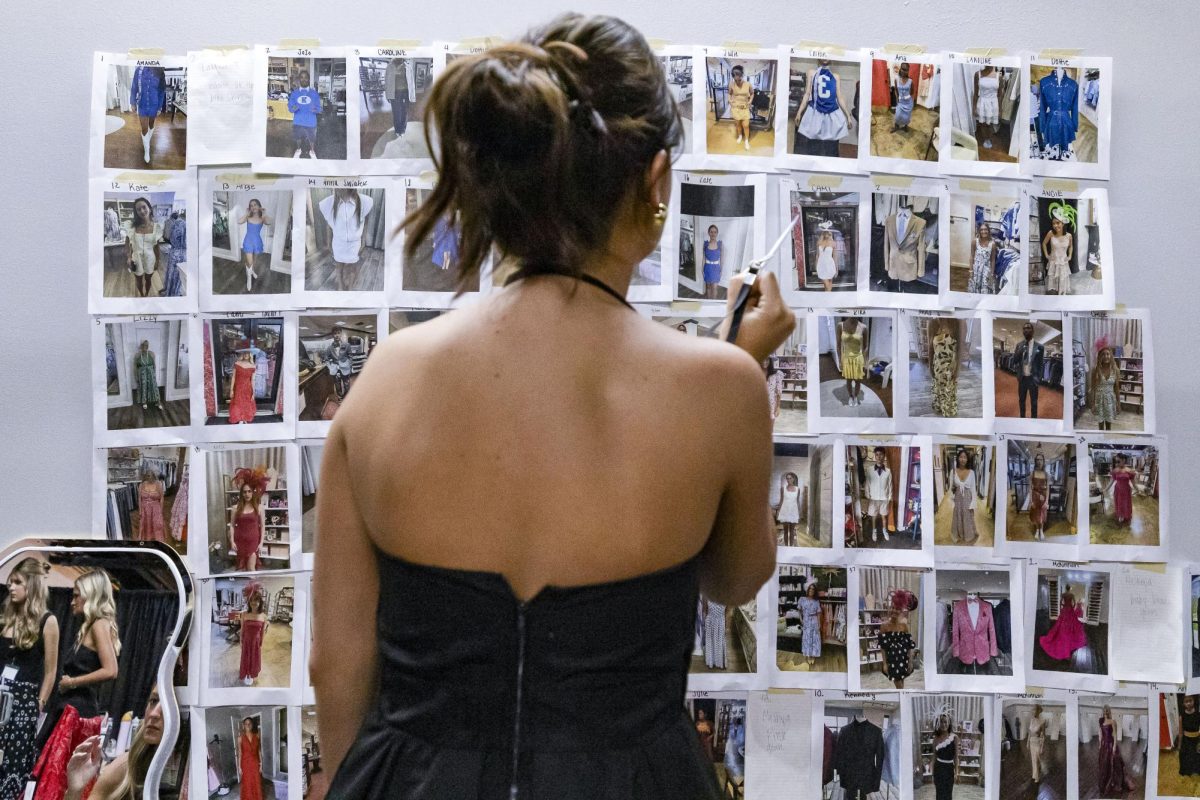
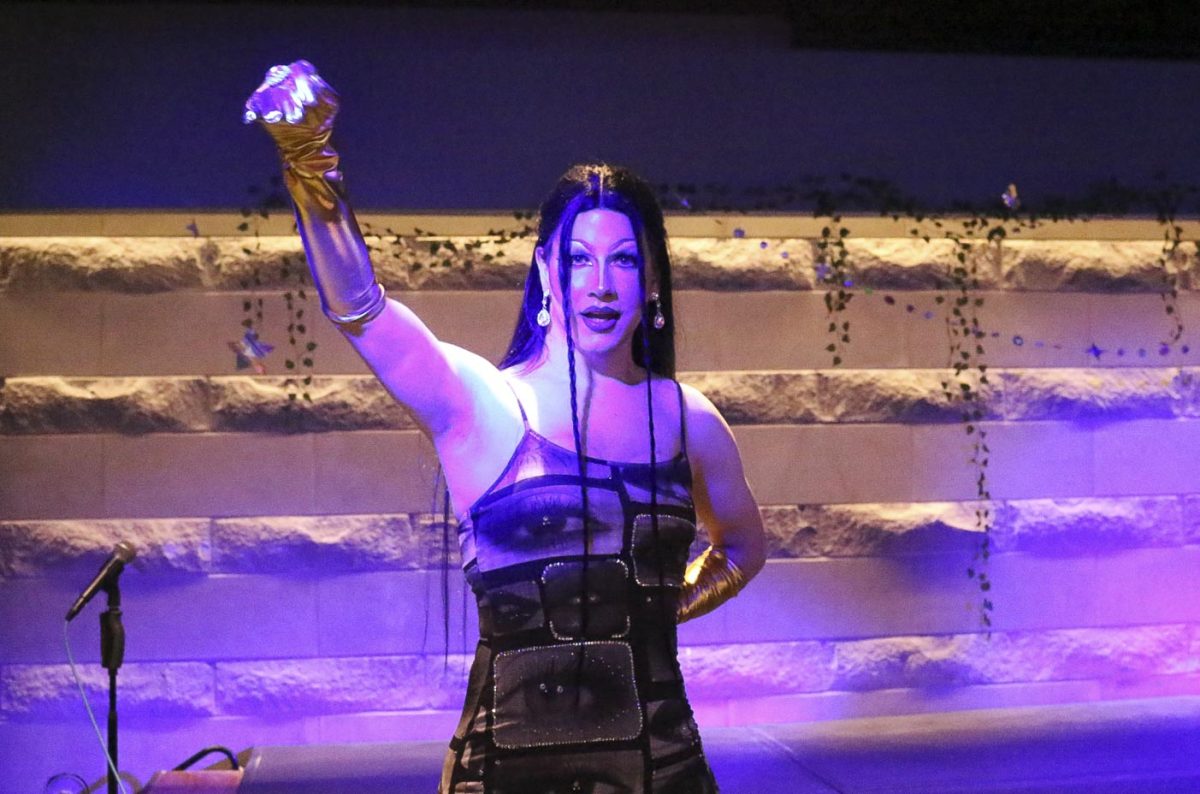

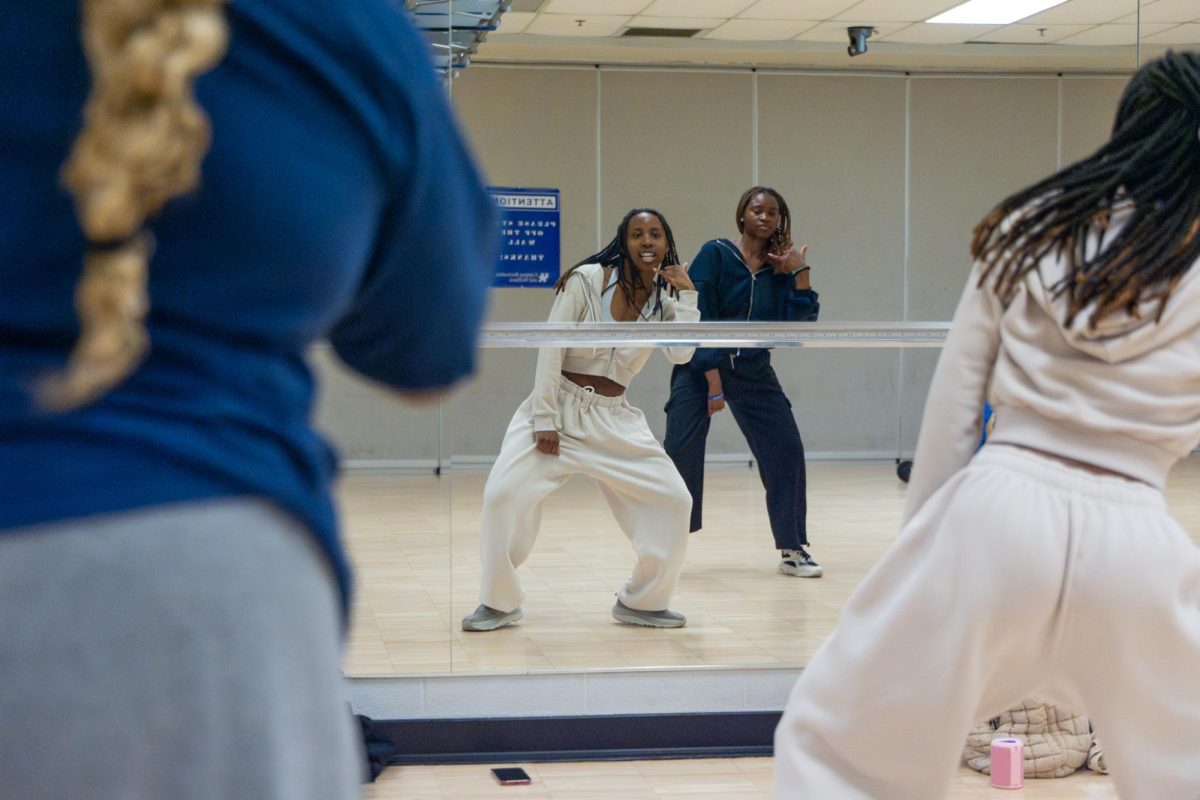
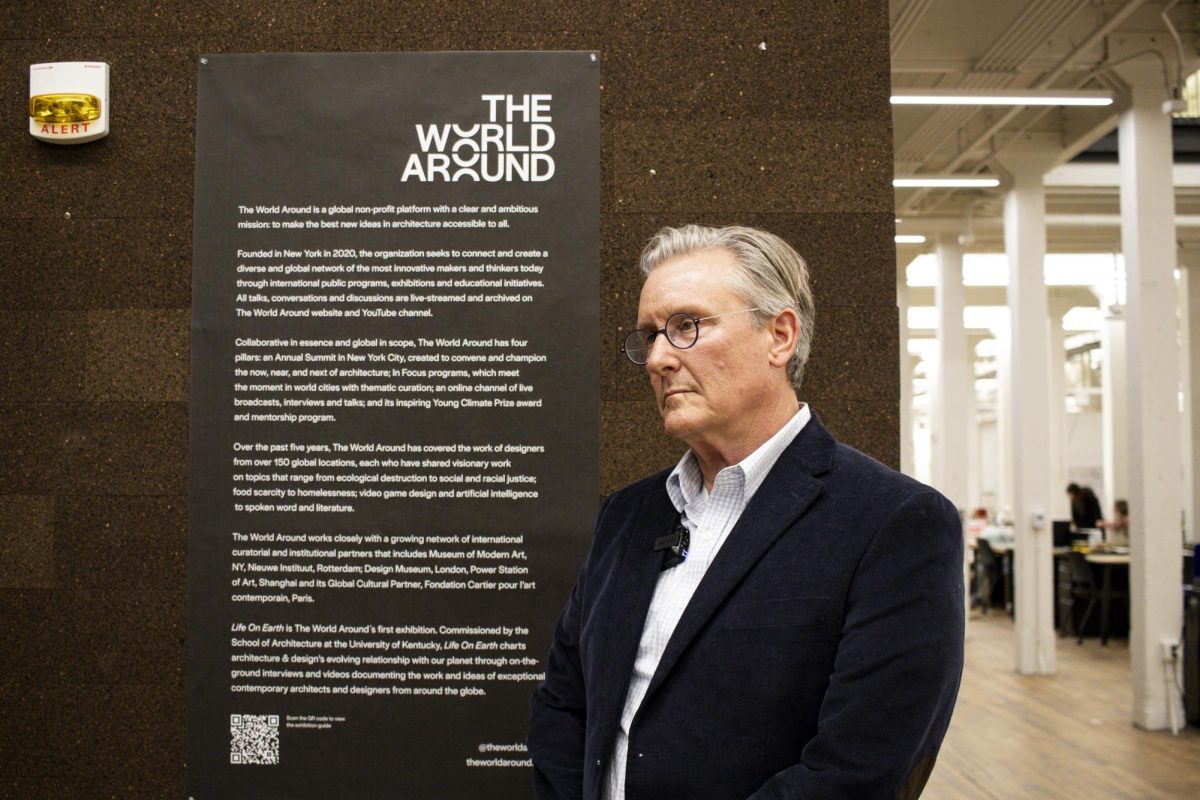
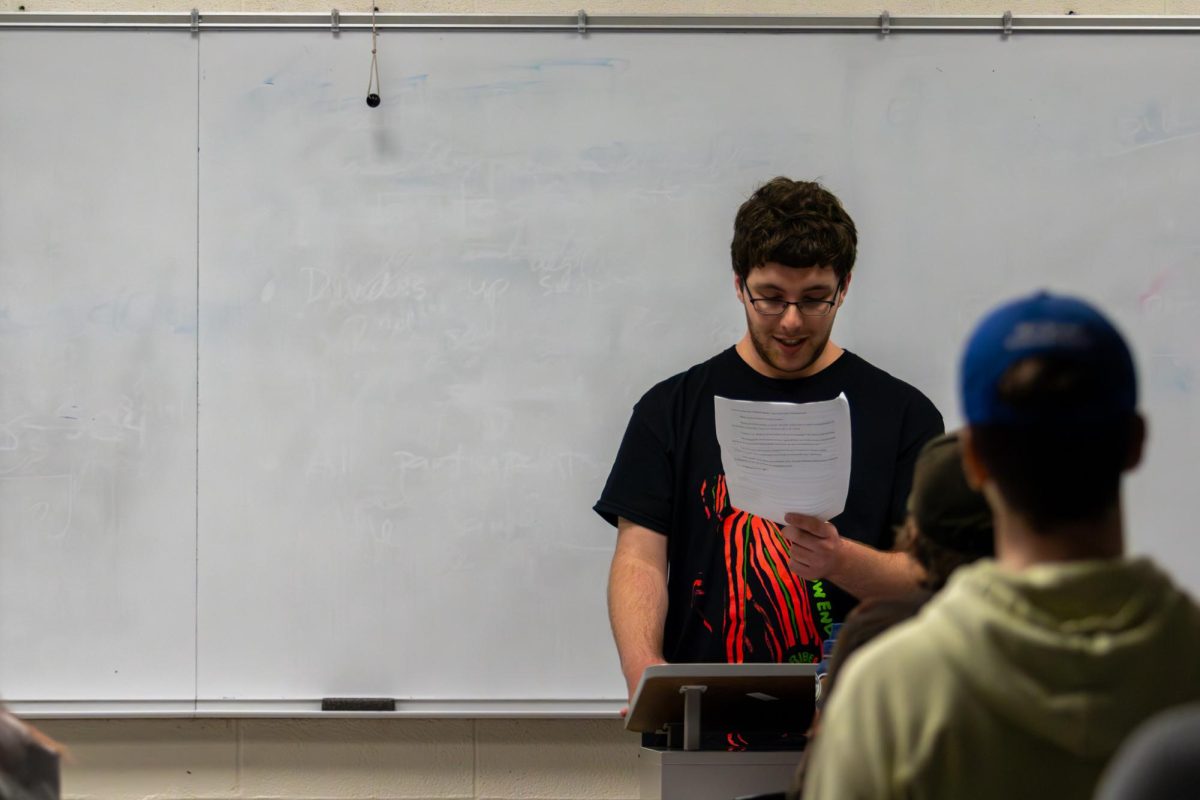
Jay Stringer-Vaught • Mar 6, 2025 at 5:51 pm
Great article! Very well written.